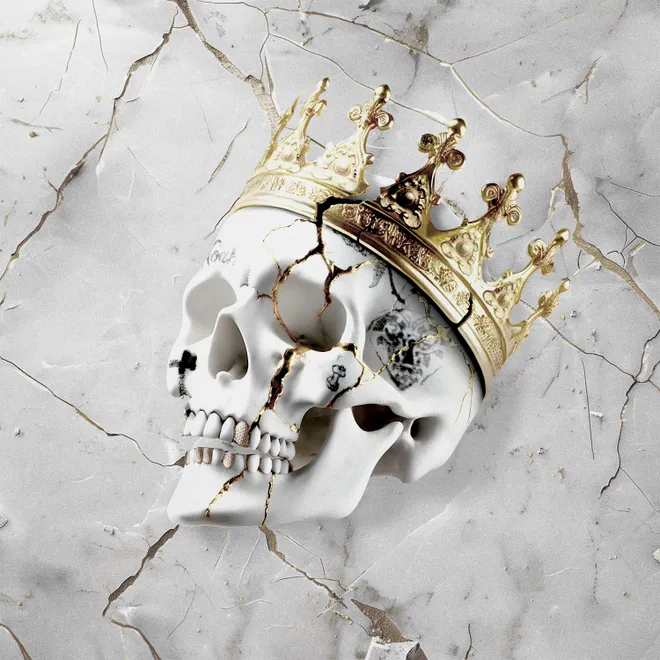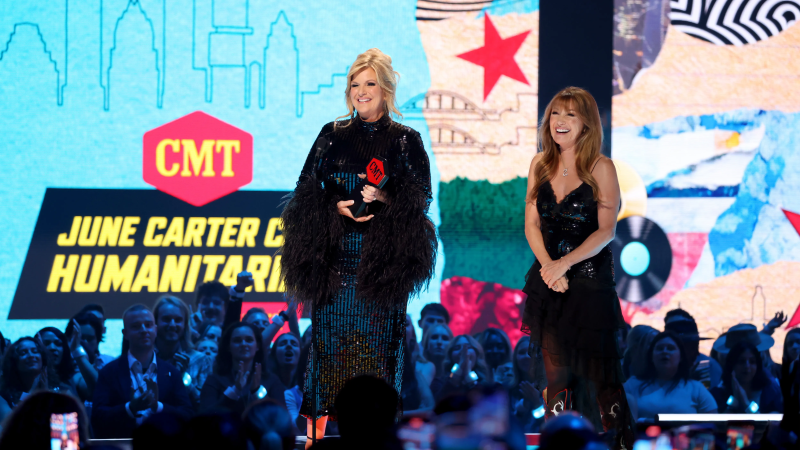Jelly Roll album 'Beautifully Broken' exposes regrets, struggle for redemption: Review
There is no understating the authenticity of Jelly Roll.
You won’t find flowery poetic musings in his lyrics. Just plainspoken storytelling about his regrets, mental struggles and redemption couched in acoustic guitars, affecting backbeats and the occasional banjo and gospel chorus.
Jelly Roll previewed his latest album, “Beautifully Broken,” in June with the live debut of its lead single, “I Am Not Okay,” on Howard Stern’s SiriusXM show. The poignant song that delves into the gravity of depression, the mental labor required to manage it and the ultimate decision to hang on until the day “we’ll see the other side,” was the ideal precursor to his whopping 22-track album, out now.
Jelly Roll, born Jason DeFord, turns 40 in December. His has been a life of hardship, hard time (he estimates he’s been arrested more than 40 times for drug-related offenses) and even harder lessons.

But as he’s asserted on his Grammy-nominated crossover breakthrough “Save Me” as well as country-rock hits “Son of a Sinner” and “Need a Favor,” the road to atonement has no shortcuts.
Need a break? Play the USA TODAY Daily Crossword Puzzle.
As with other lengthy albums released this year, “Beautifully Broken” can feel a bit bloated (the notion of musical efficiency capsized with the unlimited space of the internet is not a good thing). But Jelly Roll’s followers, who undoubtedly extract the heartfelt sentiments in his unvarnished views, will likely appreciate the bounty of songs.
Here are five songs that we think stood out among the the rest:
‘Winning Streak’
The opening song on “Beautifully Broken” immediately draws the listener into Jelly Roll’s world, an exhaustive journey of 12-step meetings where he is “sweating in an old church basement/wishing I was wasted.” His frank take, backed by a swelling gospel chorus and piano, unspools with realness (“I’m sick of feeling hopeless”) and his desire to flee the room is palpable. But his doubts and frustrations are tempered by a wise man who reminds him at a meeting that, “nobody walks through these doors on a winning streak.”
More:North Carolinians Eric Church, Luke Combs on hurricane relief concert: 'Going to be emotional'
‘Higher Than Heaven’ featuring Wiz Khalifa
A few guests join Jelly Roll on the album (singer Ilsey and Machine Gun Kelly among them), but the most effective is rapper Wiz Khalifa, who dots the short song with a verse sandwiched between Jelly Roll’s building chorus. The easy-chugging tune about escape – “I roll up my problems/I know it ain’t gonna solve them/light ‘em up in a flame/let it take me there where I don’t feel a thing” – adopts a singsong lilt that belies the pensive lyrics.

‘Everyone Bleeds’
Jelly Roll blasts his meaty rasp of a voice over pointed verses – “Everybody lies/ everybody picks one side/everybody cries sometimes/it’s just what it is” – that are bracingly candid. A pounding beat and full chorus behind him balance his powerful vocals as he reminds that no matter fame or money, we all feel when we're cut.

‘Get By’
Jelly Roll has been playing this robust foot-stomper in concert and really should consider meshing it with Dolly Parton’s “9 to 5” given the shared chord progression of the songs. A barnburner about Jelly’s survival tactics (“throw some hallelujahs to the big man in the sky”), the driving rocker is also outfitted with an engaging chorus of multiple voices and a hard close that makes the lyrics linger even longer.
More:Billie Eilish tells fans 'I will always fight for you' at US tour opener

‘Little Light’
The most melodic song on the album is propelled by the whine of pedal steel guitar that is complemented by Jelly Roll’s soft vocals. He builds into the soaring chorus – “I’ve been down the darkest roads/set fire to all my homes/one thing I’ve learned in life, save room for a little light” – that ensures the track is destined for success on multiple genre charts. While “Little Light” underscores Jelly’s pop instincts (he told Stern that “Save Me” was inspired by Bette Midler’s “The Rose”), the banjo picking and organ that color the song’s coda circle back to his Tennessee roots.
Disclaimer: The copyright of this article belongs to the original author. Reposting this article is solely for the purpose of information dissemination and does not constitute any investment advice. If there is any infringement, please contact us immediately. We will make corrections or deletions as necessary. Thank you.







